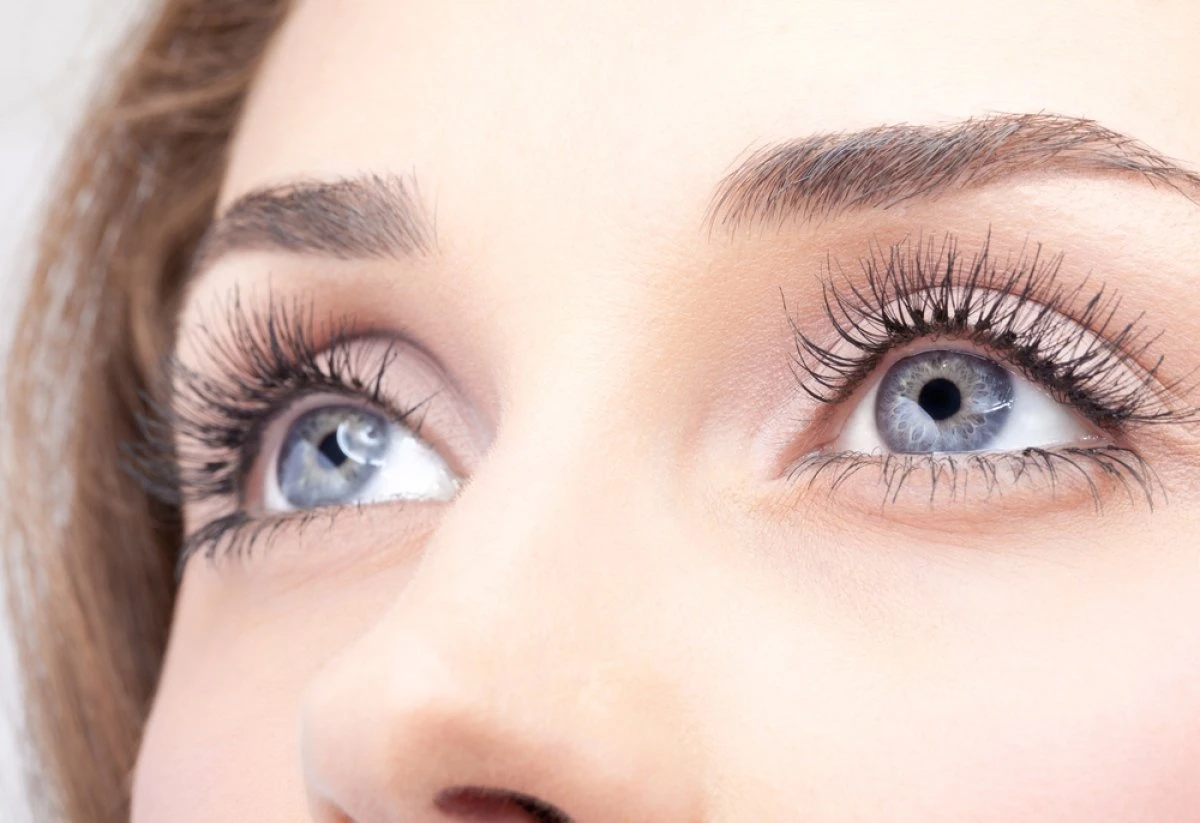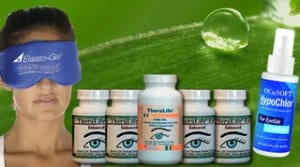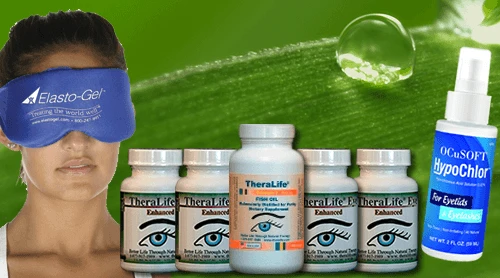You might want to explore TheraLife’s offerings for uveitis relief, as they are the only company providing an oral eye treatment option. Vitamin D is noteworthy for its role in regulating immune responses and reducing inflammation, which are crucial in managing uveitis. TheraLife’s products focus on optimizing vitamin D and other nutrients to support eye health, potentially reducing symptom severity. For those dealing with uveitis, TheraLife presents evidence-based strategies and natural remedies to enhance your eye care regimen.
challenging ocular condition.
Add To Cart
Key Takeaways
- Vitamin D helps regulate immune responses and may lower inflammation implicated in uveitis.
- Deficiency in vitamin D is linked to increased risk and severity of uveitis episodes.
- Adequate vitamin D levels support both innate and adaptive immune balance, crucial for controlling ocular inflammation.
- Supplementing or optimizing vitamin D may enhance the effectiveness of conventional uveitis therapies.
- Natural vitamin D sources, like sunlight and certain foods, offer a safe, accessible way to support overall eye and immune health.
Understanding Uveitis and Its Impact on Eye Health
Uveitis refers to inflammation of the uveal tract, which includes the iris, ciliary body, and choroid. When you develop uveitis, the primary concern is eye inflammation, which can rapidly compromise ocular structures. Uveitis symptoms often present as redness, pain, photophobia, blurred vision, and sometimes floaters. These symptoms can occur in one or both eyes and may be acute or chronic. The etiology of uveitis is diverse, involving autoimmune, infectious, or idiopathic causes. Without prompt recognition and management, persistent inflammation can damage sensitive tissues, leading to complications such as glaucoma, cataracts, or permanent vision loss. Early medical intervention is crucial for effective management of uveitis, as it helps prevent irreversible ocular damage and emphasizes the importance of accurate diagnosis and tailored treatment to preserve your eye health. Recognizing uveitis symptoms early is critical for preventing irreversible ocular damage, emphasizing the importance of accurate diagnosis and tailored treatment to preserve your eye health.
The Role of Vitamin D in Immune System Regulation
You should know that vitamin D plays a key role in regulating immune responses by modulating inflammatory pathways. It helps maintain immune balance, which is essential in conditions like uveitis where immune dysregulation leads to ocular inflammation. Evidence suggests that ideal vitamin D levels may influence both innate and adaptive immunity, potentially impacting uveitis outcomes. Additionally, integrating natural remedies and lifestyle changes such as consuming a diet rich in fresh fruits and vegetables, can help manage inflammation associated with uveitis.
Modulating Inflammatory Pathways
Although inflammation underlies many ocular conditions, recent evidence suggests vitamin D modulates key immune pathways involved in uveitis. You’ll find that vitamin D directly influences the expression of inflammatory mediators, such as interleukin-6 and tumor necrosis factor-alpha, both critical in the pathogenesis of uveitis. By dampening these mediators, vitamin D may help reduce the intensity and frequency of inflammatory episodes. This immune modulation positions vitamin D as a potential adjunct to conventional therapeutic interventions, potentially enhancing outcomes when combined with corticosteroids or immunosuppressants. Moreover, vitamin D’s role in reducing gut inflammation seen in autoimmune disorders highlights its potential benefits for individuals managing chronic inflammation, like those with uveitis.
| Mechanism | Clinical Relevance |
|---|---|
| Downregulates cytokines | Reduces inflammatory cell infiltration |
| Inhibits chemokines | Limits tissue damage |
| Modulates T-cell action | Lowers risk of chronic inflammation |
| Synergizes with therapy | Augments current therapeutic interventions |
Supporting Immune Balance
Beyond its impact on inflammatory mediators, vitamin D also plays a significant role in maintaining immune system equilibrium. When you guarantee adequate vitamin absorption, you support your body’s ability to regulate the immune response, which is essential in conditions like uveitis.
Vitamin D interacts with immune cells, influencing their activity and helping to prevent excessive or misdirected immune reactions. Evidence suggests that ideal vitamin D levels may reduce the risk of autoimmune flare-ups and promote immune tolerance.
- Enhances regulatory T cell function, reducing autoimmunity
- Modulates cytokine production to prevent overactive immune responses
- Supports epithelial barrier integrity, lowering infection risk
- Influences antigen-presenting cell activity for balanced defense
- Facilitates efficient vitamin absorption critical for overall immune health
This multifaceted immune support underscores vitamin D’s clinical relevance in uveitis management. Additionally, sufficient vitamin D levels may help reduce inflammation associated with autoimmune conditions like Sjögren’s syndrome, which is crucial in maintaining a balanced immune response.
Scientific Evidence Linking Vitamin D and Uveitis
You’ll find that recent studies highlight vitamin D’s immunomodulatory effects, especially in autoimmune conditions like uveitis. Evidence suggests that deficiency in vitamin D correlates with an increased risk and severity of uveitis. Researchers propose that adequate vitamin D levels may help modulate inflammatory responses involved in this ocular disease. Additionally, omega-3 fatty acids are also linked to potential anti-inflammatory benefits, supporting the idea that nutrient balance can play a pivotal role in managing uveitis symptoms.
Vitamin D’s Immunomodulatory Role
Emerging research highlights vitamin D’s significant immunomodulatory functions, particularly its influence on T-cell responses and regulation of inflammatory pathways. When you consider vitamin D sources—such as sunlight, fortified foods, and supplements—it’s essential to understand how this nutrient interacts with your immune system. Scientific studies demonstrate that vitamin D modulates both innate and adaptive immune system interactions, impacting the progression and severity of autoimmune ocular conditions like uveitis.
- Modulates differentiation and activity of T-helper cells, reducing pro-inflammatory cytokine production.
- Enhances regulatory T-cell function, promoting immune tolerance and mitigating autoimmunity.
- Inhibits antigen-presenting cell maturation, leading to decreased expression of co-stimulatory molecules.
- Suppresses expression of inflammatory mediators, reducing tissue damage within the eye.
- Influences signaling pathways that control immune cell migration and activation.
Uveitis is an inflammatory eye disorder that can be triggered by autoimmune diseases, infections, and other stressors. These mechanisms are foundational to vitamin D’s immunomodulatory role in uveitis.
Deficiency and Uveitis Risk
Although the exact relationship between vitamin D deficiency and uveitis remains under investigation, several clinical studies have identified a significant association between low serum vitamin D levels and increased uveitis risk.
You should know that individuals exhibiting low vitamin D are more likely to develop uveitis symptoms, including ocular pain, redness, and visual disturbances.
Observational research supports that insufficient vitamin D may alter immune regulation, predisposing you to intraocular inflammation. Additionally, patients with chronic or recurrent uveitis frequently show lower vitamin D compared to healthy controls.
Holistic methods like herbal remedies and dietary changes offer symptom management alternatives, providing further avenues for managing uveitis alongside vitamin optimization.
Considering this evidence, optimizing vitamin sources—such as dietary intake, sunlight exposure, or supplementation—may reduce your risk or severity of uveitis symptoms.
Regular monitoring of vitamin D status is advisable for those at elevated risk for ocular inflammation.
Potential Benefits of Vitamin D Supplementation for Eye Inflammation
While some researchers have explored a possible link between vitamin D supplementation and reduced eye inflammation, current clinical evidence doesn’t support its efficacy for uveitis relief.
You may hear claims about vitamin D’s immunomodulatory properties, but robust studies haven’t confirmed direct benefits for uveitis management. Instead, vitamin D’s role in eye health remains theoretical and not clinically validated for this indication.
- Vitamin D can be obtained from dietary sources and sunlight exposure, yet its effect on uveitis is unproven.
- Systematic reviews don’t endorse supplementation solely for eye inflammation.
- Most trials show inconsistent or no improvement in uveitis outcomes.
- The underlying mechanisms for vitamin D’s impact on ocular inflammation aren’t fully understood.
- Clinical guidelines don’t recommend vitamin D for uveitis therapy at this time.
Regular eye examinations are crucial for detecting early signs of Uveitis or monitoring its recurrence, ensuring prompt and appropriate treatment.
Safe Ways to Increase Vitamin D Intake Naturally
If you’re looking to increase your vitamin D levels safely, focus on natural sources such as moderate sunlight exposure and a balanced diet that includes vitamin D-rich foods. Sun exposure enables your skin to synthesize vitamin D, but you should aim for 10–30 minutes several times per week, depending on your skin type and local climate, to avoid excessive ultraviolet risk. Dietary options include fatty fish (such as salmon and mackerel), fortified dairy products, egg yolks, and mushrooms exposed to sunlight. These natural sources can help maintain ideal vitamin D status without the risks associated with high-dose supplementation. Regular monitoring of your vitamin D levels through blood tests guarantees your intake remains within the recommended range, promoting safety and efficacy in uveitis management. Incorporating vitamin D into a well-balanced diet can support overall eye health and reduce inflammation, which is crucial for managing uveitis symptoms effectively.
Lifestyle Tips to Support Eye Health Alongside Vitamin D
Several targeted lifestyle strategies can enhance eye health in conjunction with adequate vitamin D levels.
You’ll optimize ocular outcomes by integrating supportive habits with your vitamin D regimen. Evidence highlights that daily routines can help reduce inflammation, preserve vision, and support overall eye function.
- Perform eye exercises regularly to maintain ocular muscle flexibility and reduce digital eye strain.
- Prioritize hydration importance by consuming sufficient water, which sustains tear production and prevents dry eyes.
- Adopt a balanced diet rich in antioxidants, lutein, and omega-3 fatty acids, all shown to protect retinal health.
- Limit screen exposure to decrease the risk of digital eye strain and retinal stress.
- Use UV-blocking eyewear outdoors to shield your eyes from harmful ultraviolet radiation, reducing the risk of further inflammation.
- Consider your geographical location, as certain high humidity regions may provide relief for individuals suffering from dry eyes, as opposed to dry and windy environments.
challenging ocular condition.
Add To Cart
Frequently Asked Questions
Can Vitamin D Interact With Medications Prescribed for Uveitis?
You should be aware that vitamin D may cause medication interactions with drugs prescribed for uveitis, such as corticosteroids or immunosuppressants.
Some medications can impair vitamin absorption, reducing vitamin D effectiveness. Conversely, high doses of vitamin D might alter how your body processes certain drugs, potentially affecting drug efficacy or toxicity.
Always consult your healthcare provider to guarantee safe and effective management when combining vitamin D supplements with uveitis medications.
Are There Specific Vitamin D Supplements Recommended for Children With Uveitis?
When considering a child vitamin D supplement for uveitis, you should follow pediatric supplement guidelines and consult your healthcare provider.
No specific brand is universally recommended, but evidence supports using vitamin D3 (cholecalciferol) formulations at doses appropriate for age and serum levels.
You’ll need regular monitoring to avoid toxicity, as excessive intake can be harmful.
Always choose reputable products and guarantee they meet established safety and efficacy standards for children.
How Quickly Might Vitamin D Levels Influence Uveitis Symptoms?
Swift shifts in symptom improvement don’t typically happen overnight with vitamin D supplementation.
You’ll usually see clinical changes in uveitis symptoms after several weeks, depending on your baseline deficiency and adherence to dosing recommendations.
Evidence indicates that ideal vitamin D levels may modulate immune responses, but randomized studies suggest that measurable benefits might emerge after 8–12 weeks.
Always follow your healthcare provider’s dosing recommendations for safe, sustained results in symptom improvement.
Is Vitamin D Status Checked During Routine Eye Exams for Uveitis?
During routine eye exams for uveitis, clinicians typically don’t include vitamin testing as part of standard protocols.
Eye health assessments focus on inflammation, visual acuity, intraocular pressure, and retinal evaluation.
If you present risk factors or symptoms suggesting vitamin D deficiency, your ophthalmologist may recommend targeted laboratory testing.
Evidence indicates vitamin D status can influence immune response, so personalized assessment may optimize management, but routine screening isn’t universally adopted in clinical practice.
What Are Signs of Vitamin D Overdose in People With Uveitis?
Detecting dangerous doses starts with spotting specific Vitamin D overdose symptoms. You’ll notice nausea, vomiting, weakness, frequent urination, and confusion.
High calcium levels, a hallmark of Vitamin D toxicity, can cause kidney complications and cardiac rhythm issues. In individuals with uveitis, these overdose symptoms don’t differ, but pre-existing inflammation could complicate management.
Clinicians recommend regular monitoring of serum calcium and Vitamin D levels to minimize risks and guarantee ideal, evidence-based outcomes.
challenging ocular condition.
Add To Cart
Conclusion
TheraLife stands out as the only company offering oral eye treatment care, providing a unique approach to managing eye health. Their products, like the TheraLife Eye Enhanced, are designed to support natural healing and provide relief from conditions such as uveitis. By addressing inflammation and enhancing the immune response, TheraLife’s supplements act as an internal defense system, akin to equipping your eyes’ guards with robust armor against ongoing challenges. Optimizing your eye health with TheraLife’s solutions ensures that your eyes are better prepared to maintain balance and wellness, even amidst immune system fluctuations.
References
- 1.
- Jabs DA, Nussenblatt RB, Rosenbaum JT., Standardization of Uveitis Nomenclature (SUN) Working Group. Standardization of uveitis nomenclature for reporting clinical data. Results of the First International Workshop. Am J Ophthalmol. 2005 Sep;140(3):509-16. [PMC free article] [PubMed]
- 2.
- Harthan JS, Opitz DL, Fromstein SR, Morettin CE. Diagnosis and treatment of anterior uveitis: optometric management. Clin Optom (Auckl). 2016;8:23-35. [PMC free article] [PubMed]
- 3.
- Yeh S, Forooghian F, Suhler EB. Implications of the Pacific Ocular Inflammation uveitis epidemiology study. JAMA. 2014 May 14;311(18):1912-3. [PubMed]
- 4.
- Jakob E, Reuland MS, Mackensen F, Harsch N, Fleckenstein M, Lorenz HM, Max R, Becker MD. Uveitis subtypes in a german interdisciplinary uveitis center–analysis of 1916 patients. J Rheumatol. 2009 Jan;36(1):127-36. [PubMed]
- 5.
- de Groot-Mijnes JD, de Visser L, Zuurveen S, Martinus RA, Völker R, ten Dam-van Loon NH, de Boer JH, Postma G, de Groot RJ, van Loon AM, Rothova A. Identification of new pathogens in the intraocular fluid of patients with uveitis. Am J Ophthalmol. 2010 Nov;150(5):628-36. [PMC free article] [PubMed]
- 6.
- Conrady CD, Hanson KE, Mehra S, Carey A, Larochelle M, Shakoor A. The First Case of Trypanosoma cruzi-Associated Retinitis in an Immunocompromised Host Diagnosed With Pan-Organism Polymerase Chain Reaction. Clin Infect Dis. 2018 Jun 18;67(1):141-143. [PubMed]
- 7.
- Chan AY, Conrady CD, Ding K, Dvorak JD, Stone DU. Factors associated with age of onset of herpes zoster ophthalmicus. Cornea. 2015 May;34(5):535-40. [PubMed]
- 8.
- Acharya NR, Tham VM, Esterberg E, Borkar DS, Parker JV, Vinoya AC, Uchida A. Incidence and prevalence of uveitis: results from the Pacific Ocular Inflammation Study. JAMA Ophthalmol. 2013 Nov;131(11):1405-12. [PubMed]
- 9.
- Wildner G, Diedrichs-Möhring M. Autoimmune uveitis induced by molecular mimicry of peptides from rotavirus, bovine casein and retinal S-antigen. Eur J Immunol. 2003 Sep;33(9):2577-87. [PubMed]
- 10.
- Conrady CD, Feistmann JA, Roller AB, Boldt HC, Shakoor A. HEMORRHAGIC VASCULITIS AND RETINOPATHY HERALDING AS AN EARLY SIGN OF BACTERIAL ENDOPHTHALMITIS AFTER INTRAVITREAL INJECTION. Retin Cases Brief Rep. 2019 Fall;13(4):329-332. [PubMed]
- 11.
- Fraunfelder FW, Rosenbaum JT. Drug-induced uveitis. Incidence, prevention and treatment. Drug Saf. 1997 Sep;17(3):197-207. [PubMed]
- 12.
- Harman LE, Margo CE, Roetzheim RG. Uveitis: the collaborative diagnostic evaluation. Am Fam Physician. 2014 Nov 15;90(10):711-6. [PubMed]
- 13.
- Conrady CD, Larochelle M, Pecen P, Palestine A, Shakoor A, Singh A. Checkpoint inhibitor-induced uveitis: a case series. Graefes Arch Clin Exp Ophthalmol. 2018 Jan;256(1):187-191. [PubMed]
- 14.
- 15.
- Groen F, Ramdas W, de Hoog J, Vingerling JR, Rothova A. Visual outcomes and ocular morbidity of patients with uveitis referred to a tertiary center during first year of follow-up. Eye (Lond). 2016 Mar;30(3):473-80. [PMC free article] [PubMed]





